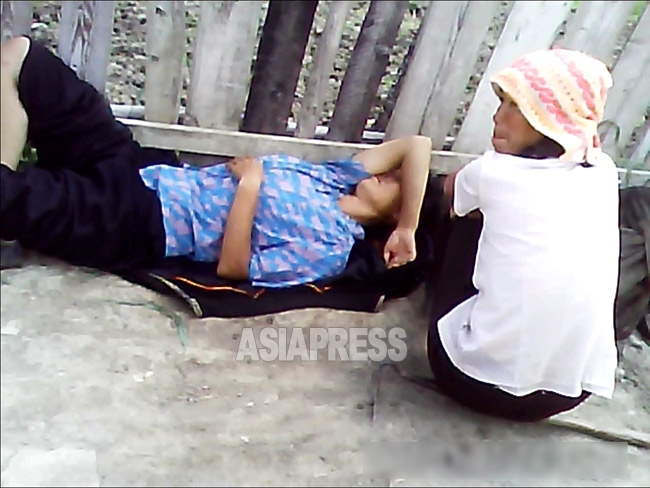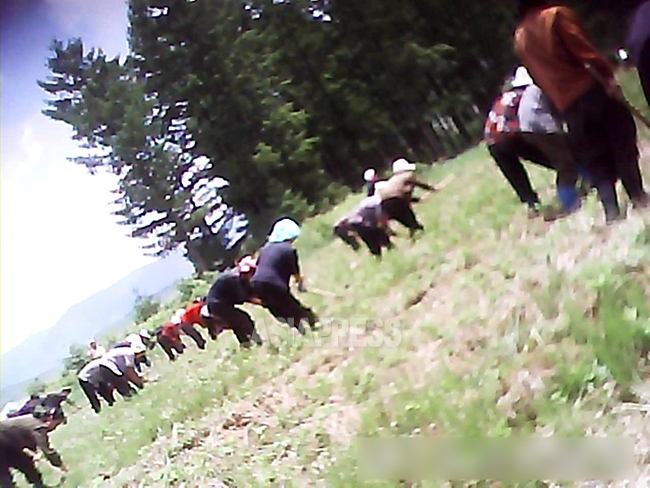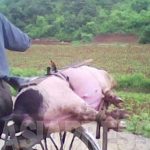
With the start of the fall harvest in North Korea, the authorities are mobilizing city dwellers to work in collective farms in earnest. The restrictions on those mobilized this year are stricter than last year, and the food provided is insufficient, leading to discontent among the mobilized urbanites. An ASIAPRESS reporting partner in Yanggang Province gave an update about the situation on September 21. (KANG Ji-won)
◆ The authorities order for all citizens to be mobilized to the farms
The reporting partner, who lives in Hyesan – a major city in Yanggang Province – said that the authorities are mobilizing members of the urban workforce and regular people to farms in Samjiyon and Unhung counties, explaining:
“All the workers at factories and enterprises in the city have been mobilized to agricultural areas with the people’s committee (the local government) designated who goes where. This year, even Workers’ Party cadres have been ordered to participate in the mobilization without question.”
North Korea’s agricultural mobilizations occur twice a year, in spring and fall. There are two kinds of mobilizations: One where workers head to farms in the morning and come home in the evening; and another where workers live in the agricultural areas for set periods of time. Those outside of the workforce, such as housewives and university students, are mobilized by the Socialist Women’s Union of Korea and Youth League, respectively.
Yanggang Province is very mountainous with few farming areas. Mobilized people are mainly harvesting potatoes and storing, drying and threshing harvested corn.

◆ Facing hunger, those mobilized steal harvested crops
The biggest obstacle facing farming areas, however, is the robbery of harvested goods by people mobilized to work on the farms. Urbanites all face difficult economic conditions, which means that many of them turn to robbery once they arrive in farming areas.
The reporting partner told ASIAPRESS that 70% of the food eaten by those mobilized is provided by people’s committees, while the remaining 30% is provided by the collective farms themselves. Many collective farms, however, are unable to provide sufficient amounts of food. According to the reporting partner:
“There was an incident in mid-September where four laborers mobilized to a farm in Samjiyon County stole some potatoes they were harvesting and went into the mountains to cook and eat them. They were caught in the act and all four were sentenced to three months of unpaid physical labor. Someone who returned from being mobilized in Samjiyon told me that last year the collective farms gave out boiled potatoes as snacks, but this year they didn’t hand out anything and just put people to work. He said it was like working in a prison. There’s a lot of discontent felt by those mobilized.”





![<Latest Photo Report> Scenes of North Korea Captured by Super Telephoto Lens (1) Residents Replaced by Border Guards Along the Riverside [ISHIMARU Jiro]](https://www.asiapress.org/rimjin-gang/wp-content/uploads/2021/08/202107kokkyou1-01-150x150.jpeg)



















